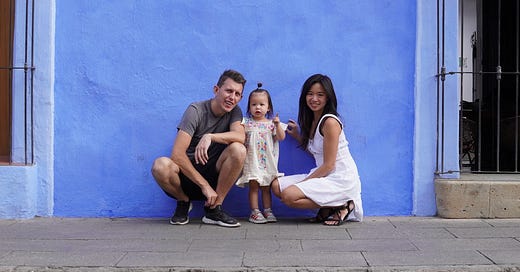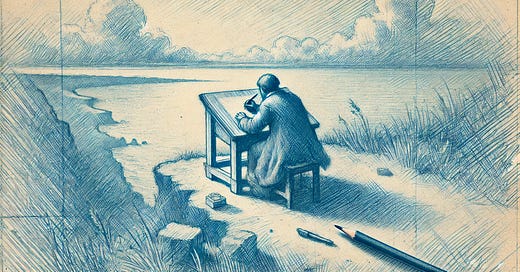November 23rd, 2019: Greetings from Taipei. I’m emerging from a mostly work-free trip wandering around Taiwan and Bali with my mother, aunt and uncle.
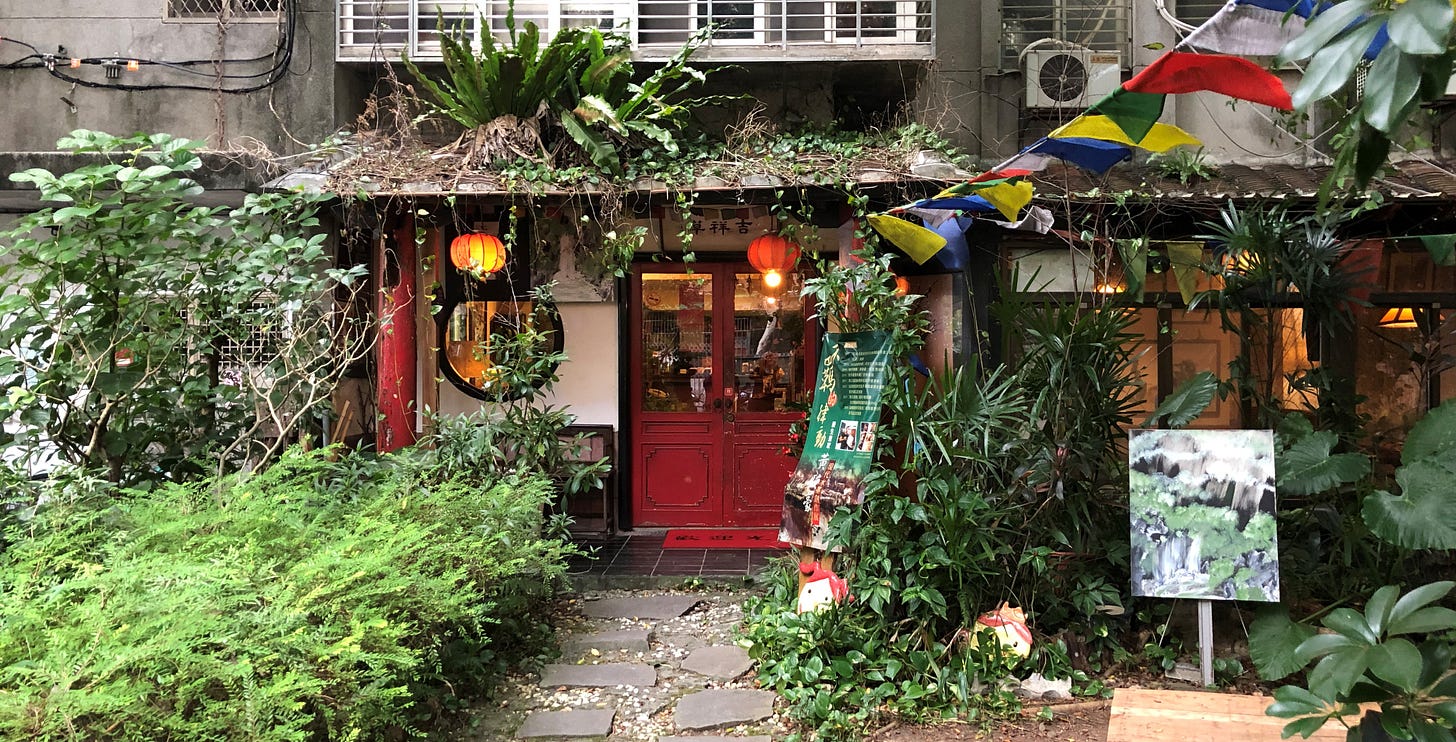
👋 Welcome aboard Keziah, Bonnie, Gautam, Edu, Sari, Craig, Lynn, Tom, Dawn, Veronica, Bulent, Mackenzie, Mollie, Zul, Carlos, Reagan, Konstantin, Kumal, Pamela, Alok, Tim, Vinay, Cathy, Sasa, Rob,
🙏 Want to join the 35 people who support this newsletter through micro-donations? find ways to support my work here
📩 Forward this to a friend who might get a kick out of it via e-mail or share on twitter#1 My Weird Life & Living The Dream
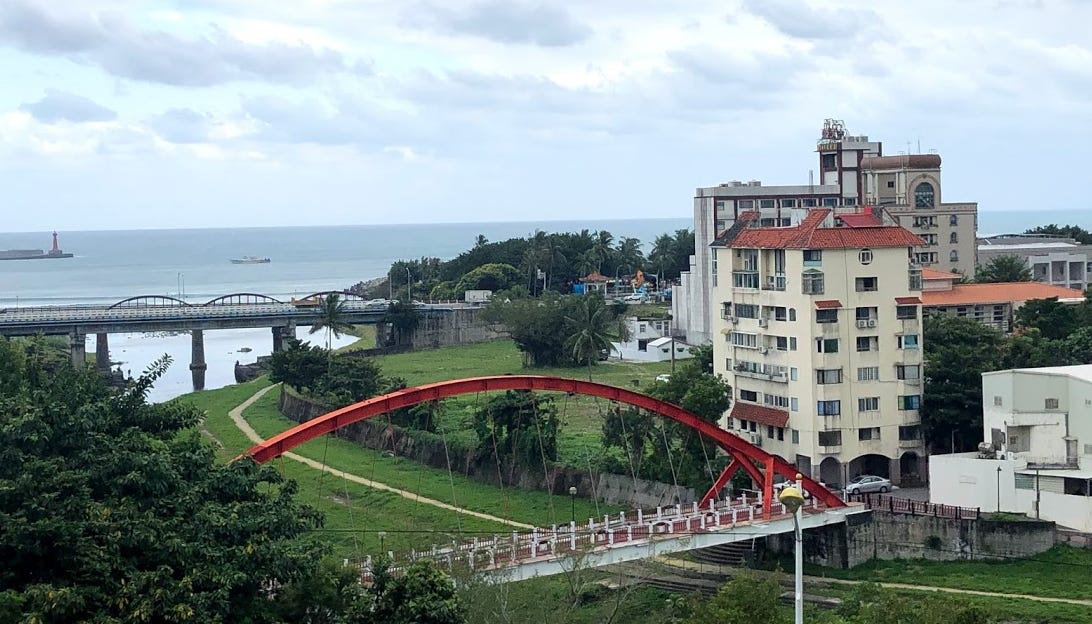
I just got back from traveling around Asia with my mother, aunt and uncle in Taiwan and Bali. It was a wonderful trip and and amazing way for Angie and me to share our life and Taiwan with loved ones.
It was also a good time for me to reflect how weird my life has become to many that know me and how grateful I am for this new path.
Three years ago I was an office worker in New York City, working in a prestigious job making more money than I ever imagined (some of my peers in New York had much different standards!) yet a storm was brewing inside and one that had been totally invisible to many who knew me my entire life.
As I got better at my job and better in navigating the corporate world, I struggled to find a deeper reason for why I was there. Early in my career I was learning a lot, but over time it seemed that no one really cared about learning at all. Working on your career narrative, pleasing executives and making money seemed to be the only thing people worked on. Not the kind of learning I was excited by.
This led to a creeping nihilism which I only clearly see now. I’m really just going to make PowerPoint slides and work 48 weeks of every year?
I wanted to play and dream and learn.
It’s hard to even write something that that last sentence. In my head I’m still yelling at myself - “that’s so childish Paul.” Yet it’s true and I’m just starting to become brave enough to share a different vision for life with people.
I’ve been known to overuse the phrase “I’m living the dream” but I really feel like I am over the past couple of years.
Taking three weeks to travel with my family unlocked all sorts of emotions, stories and memories that just never happen in day-to-day life. It confirmed to me that spending time like this with family and hopefully in the future with friends is a path to unlocking great moments in life.
This would simply not have been possible if I was working in a regular job. This past twelve months, I’ve spend about 12 weeks traveling with friends, family and my partner. As my partner and I reflected, we realized we’ve spent more meaningful time together than we might have in two or three years if we had normal work lives.
I’m not pursuing the maximum amount of wealth in the next five years of my life, but I am planning on pursuing a large amount of freedom and flexibility in terms of where I can live and work. I hope I can use this as a way to spend time with people in meaningful ways.
More to come on some of my dreams in the next couple of weeks…
#2 Shorter Workweek: A Real Trend In 2020? (h/t Cam G. & David V.)
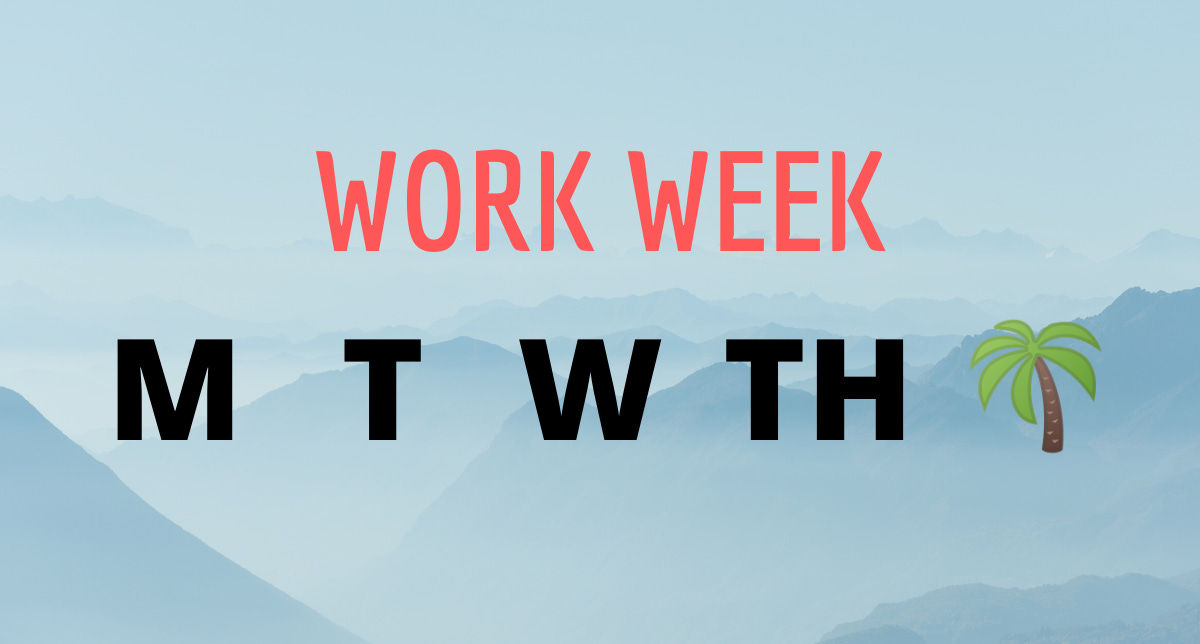
I have been writing about shorter workweeks for a couple years, but for the first time it seems that they are being taken seriously in the mainstream business world.
Microsoft Japan implemented a four-day week this past summer and saw productivity jump 40%. The article highlights an important insight that many doing similar experiments have realized:
The company said it also reduced the time spent in meetings by implementing a 30-minute limit and encouraging remote communication.
The four day workweek forces a harder look at the work that really counts for customers and enables the companies to eliminate the pointless meetings and initiatives that have overrun companies.
Another article from Wired published this week questions the logic of the eight-hour workweek. When first conceived, the eight-hour workweek was a tremendous improvement over the 12-13 hour factory day. However, I believe that today we are making a classic “is-ought” mistakes - assuming that because something is a certain way, that is how it ought to be.
Since the 1940’s when the 40-hour workweek became law, our entire society has transformed. It is more multi-cultural, production work has shifted to knowledge and digital work, more women are working and people are living longer and requiring care from family. Yet we still go to work in the same way as we did 90 years ago.
Lizzie Wade, the writer of the Wired article, found after tracking her hours that she doesn’t actually work an eight-hour day.
It turned out that no one was regularly working eight-hour days. Everybody was more in the five- to six-hour range. And until we shared that with each other, everybody was secretly feeling guilty and lazy about it.
Many remote workers, freelancers and creative workers are finding similar things. It seems if you get down to it, 4-5 hours is enough time to do substantial and meaningful work.
What if we designed a workday around doing great work instead of just doing what every other company is doing?
That’s what one company in Germany did in introducing a five hour workday:
Mr. Rheingans is not just reducing the time his employees spend in the office; he’s reducing the total time they spend working altogether. They arrive at 8 a.m. and leave at 1 p.m., at which point they’re not expected to work until the next morning.
While I think this is a step in the right direction, some of the policies do seem a bit authoritarian:
To support this new approach, he has employees leave their phones in their bags at the office and blocks access to social media on the company network. Strict rules reduce time spent in meetings (most of which are now limited to 15 minutes or less). Perhaps most important, his employees now check work email only twice each day — no drawn out back-and-forth exchanges fragmenting their attention, no surreptitious inbox checks while at dinner or on the sidelines of their kids’ sporting events.
That being said, if we have companies like this prove that they can still build a business in much less time, they will pave the path to the risk-averse large corporations to try the same thing in the next couple years.
The eight-hour workday and five-day workweek don’t make sense for the type of creative work we need for the future. As Naval Ravikant says:
Knowledge workers train, sprint, rest, and re-assess.
#3 The Happiness Ruse | Aeon | H/T Matt W.
We don’t think of happiness as people conceived of it in the past:
The Epicurean outlook on happiness – which Thomas Jefferson was thinking of when he enjoined Americans to cherish ‘life, liberty, and the pursuit of happiness’ in the Declaration of Independence – is exceedingly simple and different. As Epicurus saw it, happiness is merely the lack of aponia – physical pain – and ataraxia – mental disturbance.
It wasn’t until I fought a chronic illness in my twenties that I realized being happy every moment was not a good goal for life. I now think about contentedness - which is much more aligned with this more ancient form of happiness.
#4 A Poem (h/t Scott Drummond)
The Guest House by Jalāl ad-Dīn Muhammad Rūmī (translation by Coleman Barks)
This being human is a guest house.
Every morning a new arrival.
A joy, a depression, a meanness,
some momentary awareness comes
as an unexpected visitor.
Welcome and entertain them all!
Even if they are a crowd of sorrows,
who violently sweep your house
empty of its furniture,
still, treat each guest honorably.
He may be clearing you out
for some new delight.
The dark thought, the shame, the malice.
meet them at the door laughing and invite them in.
Be grateful for whatever comes.
because each has been sent
as a guide from beyond.
That’s all for this week. Have a good weekend!

Want to Support Boundless? All of the options here
👉 If you want to learn more about who I am or what I’m working on, find me here or check out some of my longform writing. If you aren’t subscribed to the e-mail, join us here:





